ECG/EKG Technician Certification Course
Duration:
50 hours
in class
Skill
Level:
HS Diploma / GED
Lessons:
15
Average
Median Salary:
$63,020**
See enrollment page
for pricing
| Duration | 50 hours in class |
| Lessons | 15 |
| Skill Level | HS Diploma / GED |
| Average Median Salary | $63,020** |
| COST | See enrollment |
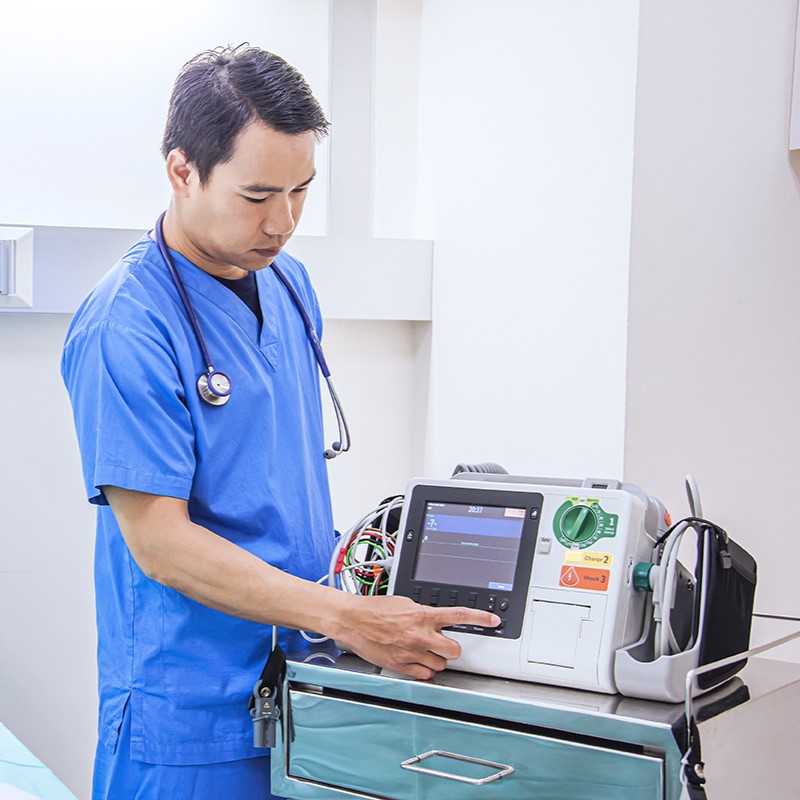

Cardiovascular technologists and technicians held about 58,100 jobs in 2021. The largest employers of cardiovascular technologists and technicians were as follows:
Embark on a rewarding career as a cardiovascular technologist or technician, with a median annual wage of $60,570 as of May 2021. This field offers growth potential, where the highest 10 percent of earners exceed $98,070, and even the lowest 10 percent earn at least $29,910 annually.
In May 2021, the median annual wages for cardiovascular technologists and technicians in the top industries in which they worked were as follows:
*All Stats above from: www.bls.gov/ooh/healthcare/diagnostic-medical-sonographers
**CA Median Pay: www.bls.gov/oes/current/oes292031
EKG Technicians, also known as Electrocardiograph technicians, Cardiovascular technicians, or Monitor Technicians, play a vital role in diagnosing and treating cardiac and blood vessel issues.
They perform essential tasks such as EKG readings, Holter Monitoring, Lead Placement, Stress Tests, and assisting physicians in diagnosing and treating cardiac and blood vessel issues. With the growing demand for properly trained and certified technicians, Regan Career Institute offers an in-depth and accelerated training course to prepare graduates for success in the workplace.
Highlights of our ECG/EKG Technician Program:
Join our EKG Technician Training Program at Regan Career Institute and embark on a rewarding career in cardiac care.
View our current medical course schedule here.
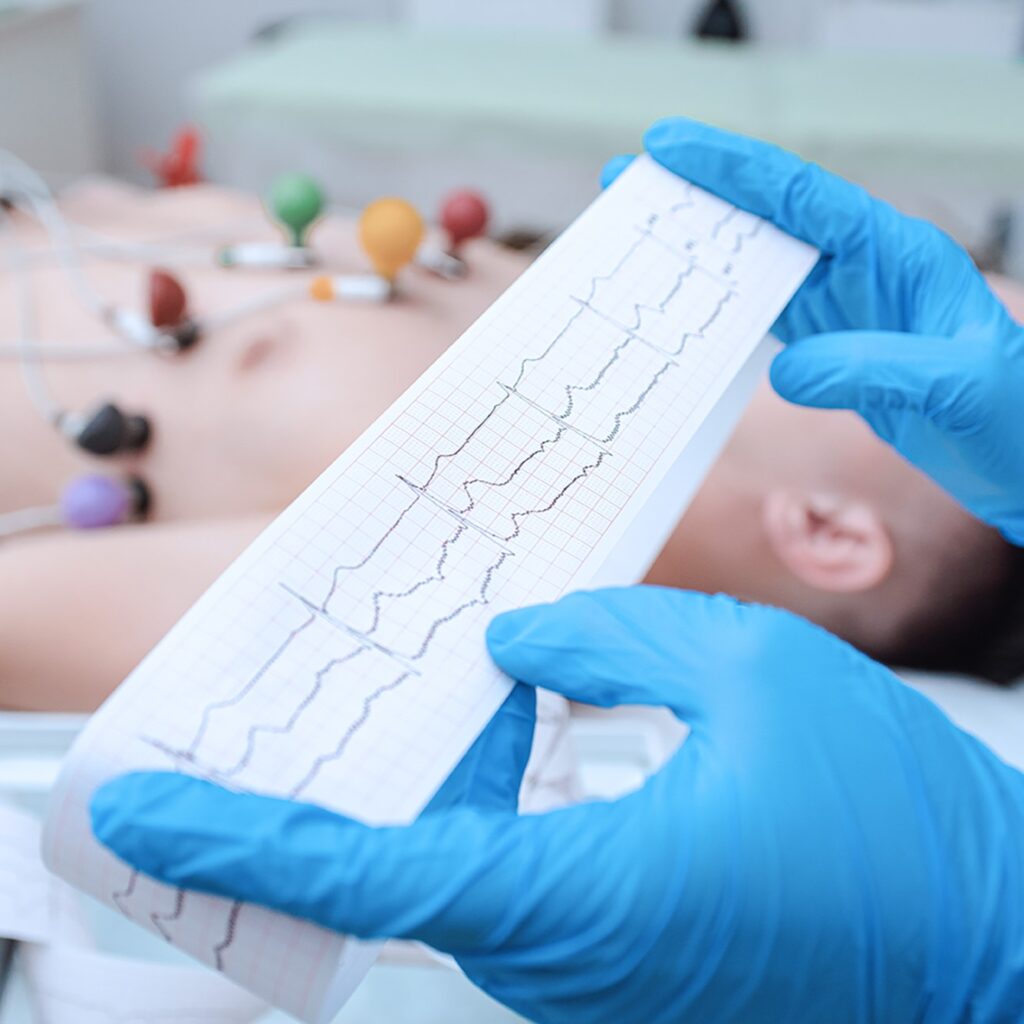
Anatomy and Physiology of the Cardiovascular System
Electrical Conduction System of the Heart
EKG waveform analysis
Components of obtaining an accurate EKG reading
Role and responsibilities of person obtaining and monitoring EKG
Perform a 12 lead EKG
Proper EKG lead placement; Practice performing an EKG
Discuss the sites of action potential generation and propagation through the cardiac conduction system. Contrast the effect of parasympathetic with sympathetic stimulation of the cardiac conduction system.
Correlate the actions of the heart represented by the p wave, PR interval, QRS complex, and T-wave.
Choose proper placement of electrodes based on ECG mechanics.
Calculate a heart rate from an ECG strip
Analyze how the following rhythms would appear on an ECG strip.
Analyze how the following dysrhythmias would appear on an ECG strip.
Describe the interventions intended to correct the effects of insufficient tissue perfusion associated with dysrhythmia.
EKG Interpretation: identification of waveforms on rhythm strip; Measurement of waveforms on rhythm strip; determining heart rate from rhythm strips.
Recognition of sinus rhythms: 1. Normal sinus rhythm 2. Sinus Bradycardia 3. Sinus tachycardia 4. Sinus Arrhythmia.
Atrial rhythms: interpretation, causes and treatment modalities of abnormal atrial rhythms
Ventricular rhythms: interpretation, causes and treatment modalities of abnormal ventricular rhythms
Junctional rhythms: interpretation, causes and treatment modalities of abnormal junctional rhythms
Atrial fibrillation; premature ventricular contractions; ventricular fibrillation; asystole; ventricular standstill
Interpretation of Heart Blocks.
Recognize EKG findings of Myocardial Infarction and ischemia
Holter Monitoring: leads placement, procedure, analysis
Reading of artificial Pacemakers
How to perform interventions associated with common arrhythmias, especially life-threatening arrhythmias.
| Introduction and Indications for EKG Testing |
| The Anatomy and Physiology: Function |
| Cardiovascular Physiology |
| Basic Electrocardiology |
| Electrical Conduction |
| The Electrocardiogram |
| Introduction to Sinus Rhythms |
| Introduction to Atrial Rhythms |
| Introduction to Junctional Rhythms |
| Introduction to Ventricular Rhythms |
| Introduction to Heart Block Rhythms |
| Introduction to Pacemaker Rhythms |
| Assessment and Treatment of Patient with Cardiac Emergency |
| Use of Testing Equipment |
| Psychological Conditioning of the Patient |
An updated medical course schedule for the ECG / EKG Technician program may be found on the schedule page here.
In order to ensure that applicants meet the entry level requirements for training that will lead toward certification, we require certain documentation for students enrolling in our ECG/EKG course. You must be 18 years old or older AND
A copy of ONE of the following documents is required:
High School Diploma: A high school diploma and transcript from an institution in the United States of America to be provided by the applicant
General Education Diploma (GED): Passing verification from certifying agency to be provided by applicant
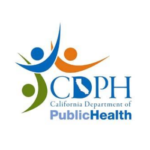

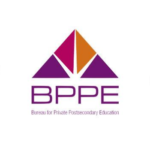
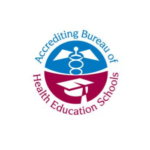
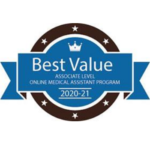
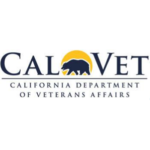

Regan Career Institute is institutionally accredited by the Accrediting Bureau of Health Education Schools (ABHES)
Copyright 2009-2023 © Regan Career Institute, All Rights Reserved.